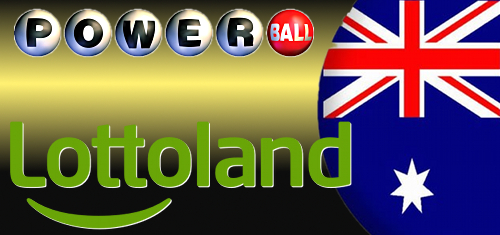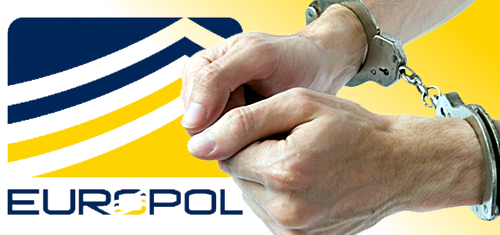The bloodstock agent came up under his cousin, L. Clay Camp; had a breaking and training business for more than 25 years.
Monthly Archives: January 2016
Hugh Motley, Va. Horseman, Dies at 60
The bloodstock agent came up under his cousin, L. Clay Camp; had a breaking and training business for more than 25 years.
Stronach Race Plan Targets Business Model
Frank Stronach Jan. 12 floated the concept of having a $12 million race in which the horse owners, as shareholders, would put up the purse money and share in all forms of revenue from that day’s racing program.
Stronach Race Plan Targets Business Model
Frank Stronach Jan. 12 floated the concept of having a $12 million race in which the horse owners, as shareholders, would put up the purse money and share in all forms of revenue from that day’s racing program.
Ryan Wins Bidding Battle for Veracity
Veracity, a 5-year-old Distorted Humor mare offered as a broodmare prospect, was purchased by Mike Ryan, agent, for $460,000 during the late stages of Keeneland’s January horses of all ages second session.
Ryan Wins Bidding Battle for Veracity
Veracity, a 5-year-old Distorted Humor mare offered as a broodmare prospect, was purchased by Mike Ryan, agent, for $460,000 during the late stages of Keeneland’s January horses of all ages second session.

Lottoland wins Aussie license; US law bans bringing winning tickets over the border
B2C lottery betting site Lottoland has received a license to operate in Australia, offering Aussie punters a shot at Wednesday’s record $1.4b Powerball lottery drawing in the US.
The Gibraltar-based Lottoland was recently granted a five-year license from the Northern Territory’s Racing Commission. Former Betfred/Centrebet exec Luke Brill has been tapped to run Lottoland’s Aussie operations, which are already underway via the lottoland.com.au domain.
Lottoland is the first lottery betting site to receive an Aussie license, meaning Australians are getting their first shot at betting on the results of international lottery draws from the comfort of their own home. Previously, local residents would have to physically travel to foreign countries to be able to participate in non-Australian lottery drawings.
Wednesday’s Powerball drawing will likely top $1.5b or more thanks to the frenzied last-minute rush of overly optimistic people willing to defy the 1 in 292m odds of snagging the top prize. We’re secretly praying that the prize goes to someone in Syria, much like the Iraqi who in December claimed a $6.4m Oregon Lottery prize he’d legally purchased from an online reseller, because something like that would really set Donald Trump off on a tirade.
Clevenger Wins Media Eclipse for Photography
Photographer Michael Clevenger of the Louisville Courier-Journal has won a 2015 Media Eclipse Award for Photography for his picture of American Pharoah winning the 2015 Belmont Stakes (gr. I) to land the Triple Crown.
Clevenger Wins Media Eclipse for Photography
Photographer Michael Clevenger of the Louisville Courier-Journal has won a 2015 Media Eclipse Award for Photography for his picture of American Pharoah winning the 2015 Belmont Stakes (gr. I) to land the Triple Crown.
Roan Inish Brings $500,000 at Keeneland
Canadian Oaks winner Roan Inish, an Elusive Quality mare in foal to Arch, was purchased by Evelyn Benoit for $500,000 during the second session of Keeneland’s January horses of all ages sale.
Roan Inish Brings $500,000 at Keeneland
Canadian Oaks winner Roan Inish, an Elusive Quality mare in foal to Arch, was purchased by Evelyn Benoit for $500,000 during the second session of Keeneland’s January horses of all ages sale.

Powerball jackpot keeps climbing, reaches $1.5 billion
Powerball ‘s jackpot continues to hit unseen heights, reaching $1.5 billion, lottery officials announced Tuesday. And it could go higher.

Powerball jackpot keeps climbing, reaches $1.5 billion
Powerball ‘s jackpot continues to hit unseen heights, reaching $1.5 billion, lottery officials announced Tuesday. And it could go higher.
Winning numbers drawn in 'Pick 4 Evening' game
Winning numbers drawn in ‘Pick 4 Evening’ game
Winning numbers drawn in 'Pick 4 Evening' game
Winning numbers drawn in ‘Pick 4 Evening’ game
Highland Yard to $420,000 for Mother Ruth
Multiple stakes winner Mother Ruth was acquired by Highland Yard for $420,000 during the second session of the Keeneland January horses of all ages sale Jan. 12.
Highland Yard to $420,000 for Mother Ruth
Multiple stakes winner Mother Ruth was acquired by Highland Yard for $420,000 during the second session of the Keeneland January horses of all ages sale Jan. 12.
Juvenile Falsely Reports Kidnapping; Powerball Climbs to $1.4 Billion; GE Leaving?: Nearby News
After a very mild and quiet winter thus far, we could see some snow this week, and the temps will be much colder too. The Spartans’ boys basketball team is off to a hot start as we approach the end of the first month of the winter sports season.
Juvenile Falsely Reports Kidnapping; Powerball Climbs to $1.4 Billion; GE Leaving?: Nearby News
After a very mild and quiet winter thus far, we could see some snow this week, and the temps will be much colder too. The Spartans’ boys basketball team is off to a hot start as we approach the end of the first month of the winter sports season.

Europol raids DD4BC distributed denial of service extortion group
The European Union’s top law enforcement agency has dealt a blow to an extortion ring targeting online gambling sites with distributed denial of service (DDOS) attacks.
In a statement published on its website, Europol announced that agents from Austria, Bosnia and Herzegovina, Germany and the UK cooperated on raids in December that netted two key members of the DD4BC (Distributed Denial of Service for Bitcoin) group, which directed its attacks primarily against the online gambling industry.
Europol’s Operation Pleiades focused on two members of the DD4BC ring located in Bosnia and Herzegovina, one of whom was identified as the “main target” of the raids. The UK Metropolitan Police Cyber Crime Unit was credited with identifying the location of the key suspects. Europol also said it had conducted multiple property searches and seized an “extensive” amount of evidence.
Europol claims that DD4BC has been responsible for several Bitcoin extortion campaigns since mid-2014. Gambling sites were the main targets but DD4BC recently branched out into targeting financial services and entertainment sector sites. The group also attempted to extort users of the infamous infidelity site Ashley Madison after a hack last year resulted in members’ email addresses being published online.